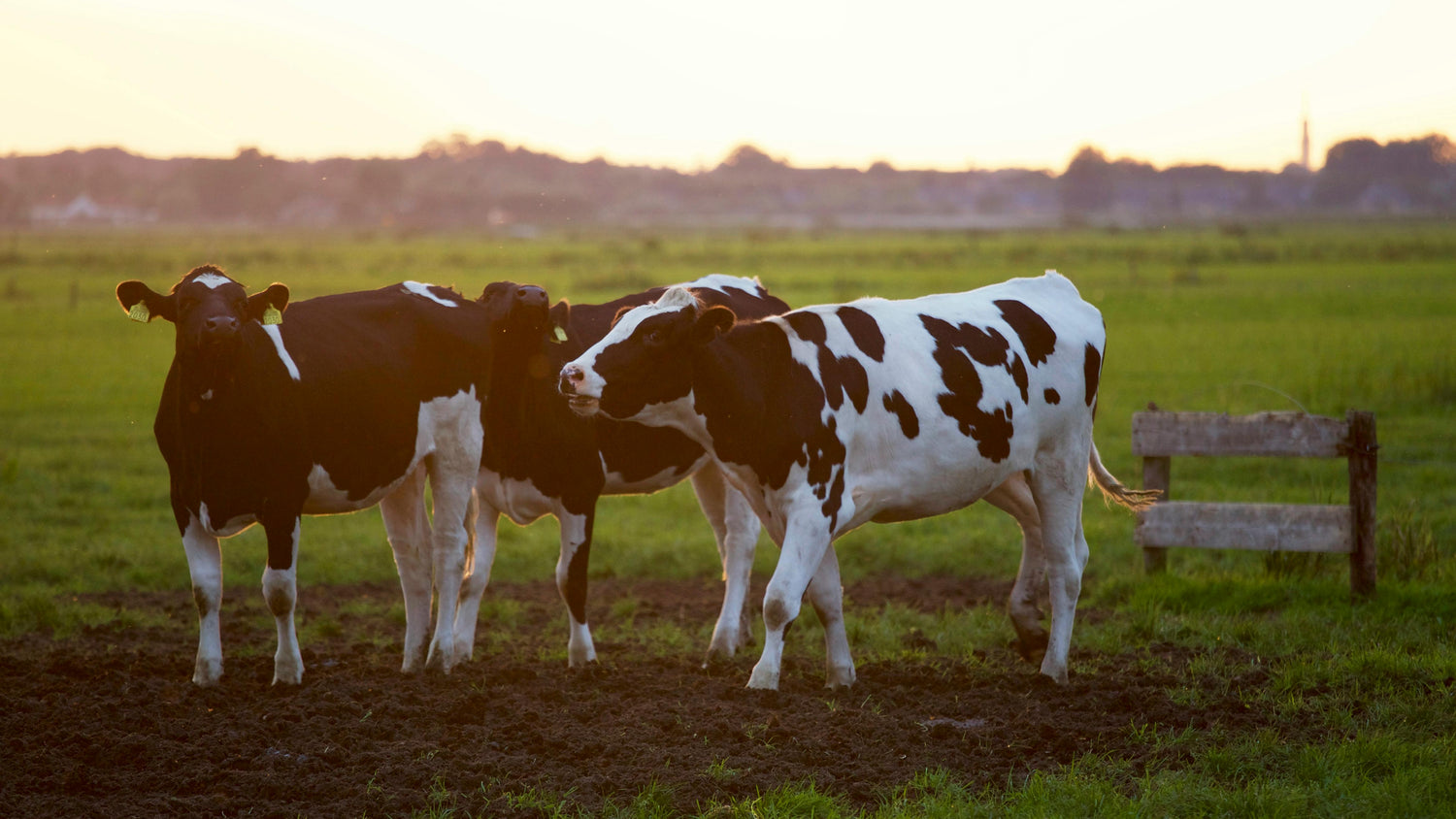
Lactose Intolerance in Infants: What Every Parent Should Know
Poppy Eleanor MustamuNavigating the world of infant nutrition, whether through breast milk or baby formula, often involves encountering the term "lactose." This fundamental component sparks questions for many parents: What exactly is lactose, and why is it a crucial element in most infant formulas? Are there situations where certain infants should steer clear of lactose? In this blog, we'll delve into these common queries, shedding light on lactose in infant nutrition. At the end, we have also curated a list of frequently asked question on this subject.
Understanding Lactose in Infant Nutrition
Curiosity may arise about the nature of lactose. Were you aware that human milk contains a higher lactose content compared to milk from other common mammals? Breast milk, with around 7% lactose, surpasses goat milk's 4% and cow's milk's 5%. Interestingly, lactose is present in breast milk regardless of the parent's dairy intake, making it digestible for nearly all infants.
While some individuals should steer clear of lactose in their diet, lactose intolerance in infants are rare. Except for specific circumstances like prematurity or inherited lactase deficiency, lactose intolerance is not frequent in infants. Parents and caregivers often ponder the possibility of lactose intolerance in their babies, especially if they have one.
However, the type of lactose intolerance symptoms in infants seen in older individuals usually doesn't manifest at such a young age. In breast milk, lactose serves to provide essential carbohydrates for energy, constituting around 40% of its calories. Whether lactose (milk sugar) or another form of carbohydrate, sugar is vital for infants.
Certain conditions may render a baby unable to digest lactose in formula or breast milk. Babies, however, don't experience lactose intolerance the same way as older kids and adults. Infants with congenital lactase deficiency, a genetic condition, face challenges in breaking down the lactose present in both breast milk and baby formula. Additionally, the rare genetic disorder, galactosemia, can hinder the digestion of lactose.
When lactose is excluded, a substitute is introduced to maintain the caloric content, with glucose or sucrose being preferable options.
Baby formulas labeled as "sensitive" frequently contain reduced lactose, although this is not always the case. When lactose is omitted, a substitute is introduced to preserve the caloric content, with glucose or sucrose being optimal choices. To confirm whether a formula is a lactose-reduced infant formula, a careful review of the ingredient list is necessary.
When addressing a crying or spitting-up baby, most tend to fare better with a formula that alters the protein rather than the carbohydrate source. Modifying the protein, such as switching to a partially-hydrolyzed or 100% whey protein formula, tends to yield more success than switching to a formula with intact proteins and minimal lactose. The key takeaway is that when addressing concerns such as gas, constipation, or discomfort in babies, the primary cause is likely linked to milk protein, not lactose. In Europe, regulations on non-lactose carbohydrates in formulas are stricter compared to the US, allowing certain carbohydrates only in special formulas, not in standard cow's milk-based formulas.
Addressing Lactose Sensitivity in Infant: Symptoms & Solutions
Recognizing lactose sensitivity in infants can be challenging, as symptoms vary. Common indicators include diarrhea, frequent crying, and watery stools (green/yellow), while less common signs include noisy bowel sounds and vomiting. These signs can manifest minutes to hours after consuming milk, but they may also be attributed to other causes.
If you suspect milk sensitivity or lactose intolerance in your baby, seeking prompt consultation with a healthcare professional (GP) is crucial.
To rule out other potential causes, a healthcare professional may review your baby's medical history and growth, noting any observed symptoms. You might be advised to try lactose-free milk and avoid weaning foods that contains lactose for a trial period. If symptoms alleviate, continuing this diet may be recommended to prevent a recurrence.
In cases of diagnosed lactose intolerance in infants, avoiding lactose is a must. Not only from milk but also from other foods. For very young infants, this involves a switch to lactose-free formula milk and following a strict diet. Additional calcium, magnesium, and zinc may be necessary to compensate for nutrients not obtained from milk.
For older babies, consider transitioning from a milk-free formula to lactose-free milk, which is commonly available in most supermarkets. Always carefully examine food labels to confirm the absence of lactose. Be thorough in checking for terms such as whey, curds, milk by-products, dry milk solids, and non-fat dry milk powder in the ingredient lists.
Frequently Asked Questions: Lactose and Infants
We understand that parents often have numerous questions regarding their baby's lactose consumption and the potential for lactose intolerance. To address these concerns, we've compiled a list of frequently asked questions on this topic.
-
How common is lactose intolerance in infants?
Lactose sensitivity in infants is relatively rare. The majority of babies naturally generate the enzyme lactase, facilitating the digestion of lactose. Nevertheless, some infants may experience temporary lactose sensitivity following a stomach infection, but this matter typically resolves on its own.
-
What is the difference between lactose intolerance and milk allergy?
Lactose sensitivity and milk allergy are different conditions. Lactose sensitivity arises when an infant's system struggles to fully digest lactose, resulting in digestive symptoms. In contrast, milk allergy involves an immune system response to proteins in cow's milk, leading to symptoms such as skin reactions, breathing difficulties, and digestive issues.
-
Can breastfeeding mothers eat dairy products?
Certainly. Nursing mothers can generally incorporate dairy products into their diet without any concerns. The lactose in a mother's diet does not affect the lactose levels in her breast milk. However, if a baby is confirmed to have a cow's milk allergy, the mother may need to abstain from dairy products.
-
Can lactose intolerance be cured?
While there is no specific cure for lactose sensitivity, effective management can be achieved through strategic dietary adjustments. In cases of transient lactose sensitivity in infants, such as after a stomach infection, the condition typically resolves as the baby recovers.
- Is it necessary to completely eliminate lactose from baby's diet?
Not necessarily. Many babies with lactose sensitivity can tolerate small amounts of lactose. Complete elimination may not be crucial, especially in cases of lactose overload or temporary lactose sensitivity. Always seek guidance from a healthcare provider to determine the most suitable dietary plan for your baby. -
Are there any long-term complications associated with lactose intolerance?
Lactose intolerance itself doesn't pose long-term health issues. However, ensuring your baby receives ample nutrition is crucial when following a lactose-free or reduced-lactose diet, especially for vital nutrients like calcium and vitamin D, commonly found in various food sources beyond just dairy products.




